Governance and Finance
Corporate governance today is about more than just making profits for shareholders. It now aims to balance the needs of all stakeholders-employees, investors, creditors, and business partners. Good governance helps companies run better, attract talent, gain customer trust, and lower financial costs. Conversely, poor governance can lead to scandals, job losses, and broken contracts.
The “Governance and Finance” research group studies how governance works in modern financial markets. One of the focuses is on how firms choose, motivate, and keep talented leaders, especially CEOs, since exemplary leadership is key to company success.
The group is also interested in investigating how changes in financial markets, like the rise of big shareholders, activist investors, or even creditors, affect company decisions. The goal is to understand how different players and institutions influence company behavior and what that means for the future of business.
Research Cluster
Financial Resilience and RegulationYour contact

- Department Financial Markets
Refereed Publications
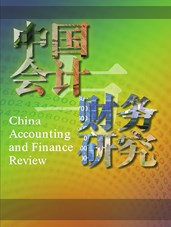
Evolvement of China-related Topics in Academic Accounting Research: Machine Learning Evidence
in: China Accounting and Finance Review, No. 4, 2020
Abstract
This study employs an unsupervised machine learning approach to explore the evolution of accounting research. We are particularly interested in exploring why international researchers and audiences are interested in China-related issues; what kinds of research topics related to China are mainly investigated in globally recognised journals; and what patterns and emerging topics can be explored by comprehensively analysing a big sample. Using a training sample of 23,220 articles from 46 accounting journals over the period 1980 to 2018, we first identify the optimal number of accounting research topics; the dynamic patterns of these accounting research topics are explored on the basis of 46 accounting journals to show changes in the focus of accounting research. Further, we collect articles related to Chinese accounting research from 18 accounting journals, eight finance journals, and eight management journals over the period 1980 to 2018. We objectively identify China-related accounting research topics and map them to the stages of China’s economic development. We attempt to identify the China-related issues global researchers are interested in and whether accounting research reflects the economic context. We use HistCite TM to generate a citation map along a timeline to illustrate the connections between topics. The citation clusters demonstrate “tribalism” phenomena in accounting research. The topics related to Chinese accounting research conducted by international accounting researchers reveal that accounting changes mirror economic reforms. Our findings indicate that accounting research is embedded in the economic context.
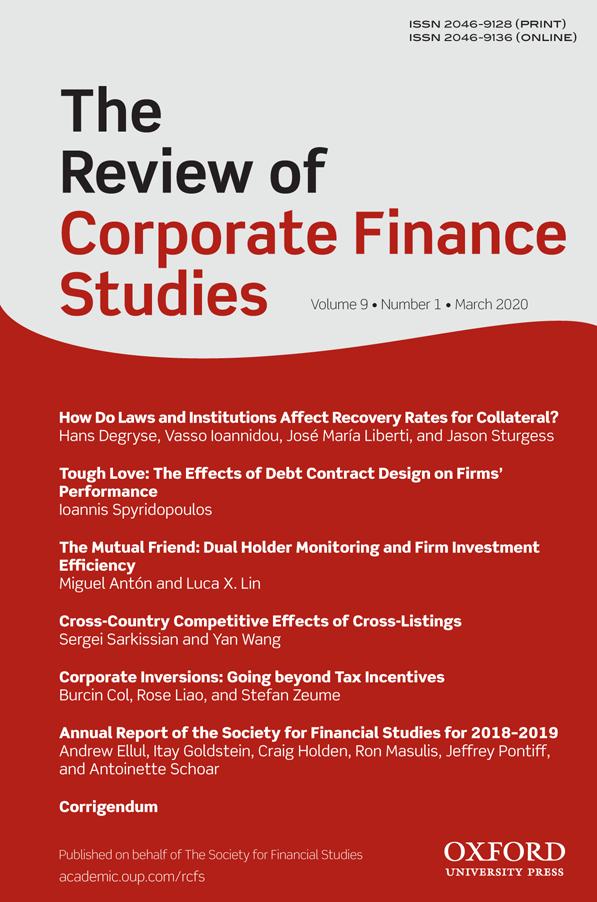
Tournament Incentives and Acquisition Performance
in: Review of Corporate Finance Studies, No. 2, 2020
Abstract
This paper examines the impact of promotion-based tournament incentives on corporate acquisition performance. Measuring tournament incentives as the compensation ratio between the CEO and other senior executives, we show that acquirers with greater tournament incentives experience lower announcement returns. Further analysis shows that the negative effect is driven by the risk-seeking behavior of senior executives induced by tournament incentives. Our results are robust to alternative identification strategies. Our evidence highlights that senior executives, in addition to the CEO, play an influential role in acquisition decisions.
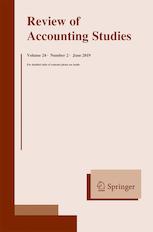
Investor Relations and IPO Performance
in: Review of Accounting Studies, No. 2, 2020
Abstract
We analyze the value of investor relations (IR) strategies to IPO firms. We find that firms that are less visible and have inexperienced management tend to hire IR consultants prior to the issue date. IR consultants help create positive news coverage before an IPO, as reflected in a more optimistic tone of published media. Their presence is associated with higher underpricing at the IPO date but with lower long-run returns. IR-backed IPOs also exhibit disproportionately higher insider-related agency problems, as IR-induced higher underpricing tends to occur primarily in IPOs where underwriter and venture capitalist agency conflicts are more severe. These findings suggest that the IR programs of IPO firm are mostly short-term oriented and facilitate the ulterior motives of some insiders (underwriters and venture capitalists) targeting higher first-day returns.
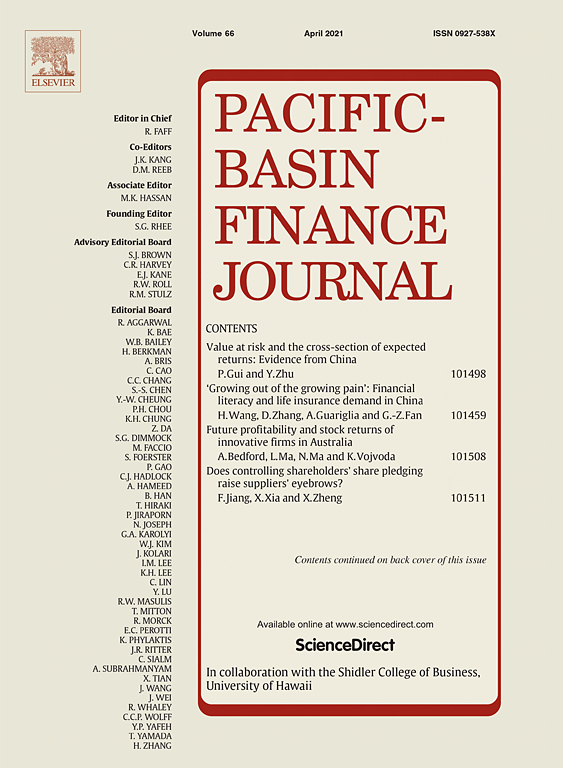
Why are some Chinese Firms Failing in the US Capital Markets? A Machine Learning Approach
in: Pacific-Basin Finance Journal, June 2020
Abstract
We study the market performance of Chinese companies listed in the U.S. stock exchanges using machine learning methods. Predicting the market performance of U.S. listed Chinese firms is a challenging task due to the scarcity of data and the large set of unknown predictors involved in the process. We examine the market performance from three different angles: the underpricing (or short-term market phenomena), the post-issuance stock underperformance (or long-term market phenomena), and the regulatory delistings (IPO failure risk). Using machine learning techniques that can better handle various data problems, we improve on the predictive power of traditional estimations, such as OLS and logit. Our predictive model highlights some novel findings: failed Chinese companies have chosen unreliable U.S. intermediaries when going public, and they tend to suffer from more severe owners-related agency problems.
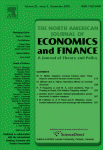
Tornado Activity, House Price and Stock Returns
in: North American Journal of Economics and Finance, April 2020
Abstract
In this paper we investigate the effects of tornado activity on house prices and stock returns in the US. First, using geo-referenced and metropolitan statistical area (MSA)-level data, we find tornado activity to be responsible for a significant drop in house prices. Spillover tornado effects between adjacent MSAs are also detected. Furthermore, our granular analysis provides evidence of tornadoes having a negative impact on stock returns. However, only two sectors seem to contribute to such a negative effect (i.e., consumer discretionary and telecommunications). In a macro-analysis, which relies on aggregate data for the South, West, Midwest and Northeast US regions, we then show that tornado activity generates a significant drop in house prices only in the South and Midwest. In these regions, tornadoes are also responsible for a drop in income. Tornado activity is finally found to positively (negatively) affect stock returns in the Midwest (South). If different sectors are examined, a more heterogeneous picture emerges.
Working Papers
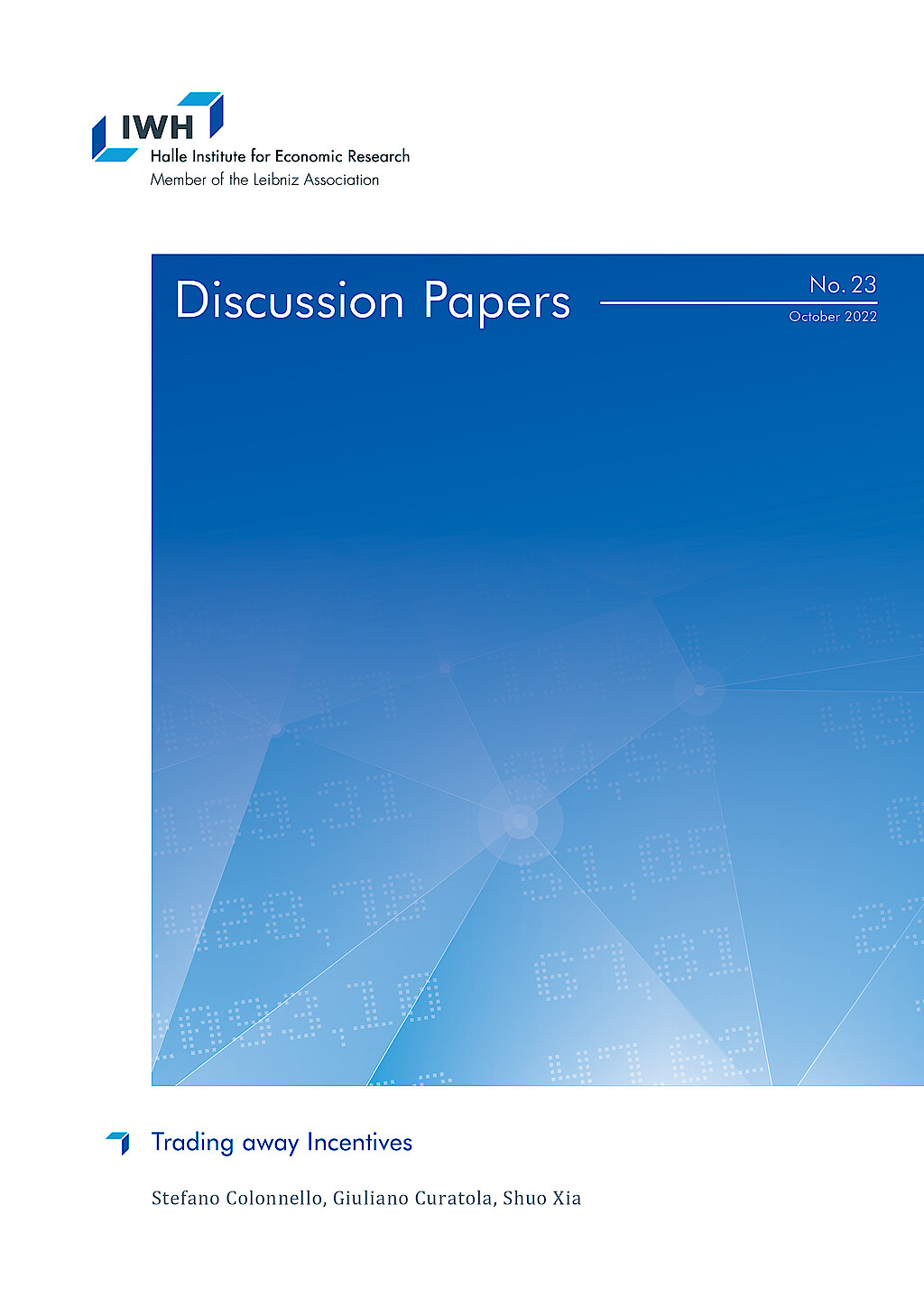
Trading away Incentives
in: IWH Discussion Papers, No. 23, 2022
Abstract
Equity pay has been the primary component of managerial compensation packages at US public firms since the early 1990s. Using a comprehensive sample of top executives from 1992-2020, we estimate to what extent they trade firm equity held in their portfolios to neutralize increments in ownership due to annual equity pay. Executives accommodate ownership increases linked to options awards. Conversely, increases in stock holdings linked to option exercises and restricted stock grants are largely neutralized through comparable sales of unrestricted shares. Variation in stock trading responses across executives hardly appears to respond to diversification motives. From a theoretical standpoint, these results challenge (i) the common, generally implicit assumption that managers cannot undo their incentive packages, (ii) the standard modeling practice of treating different equity pay items homogeneously, and (iii) the often taken for granted crucial role of diversification motives in managers’ portfolio choices.
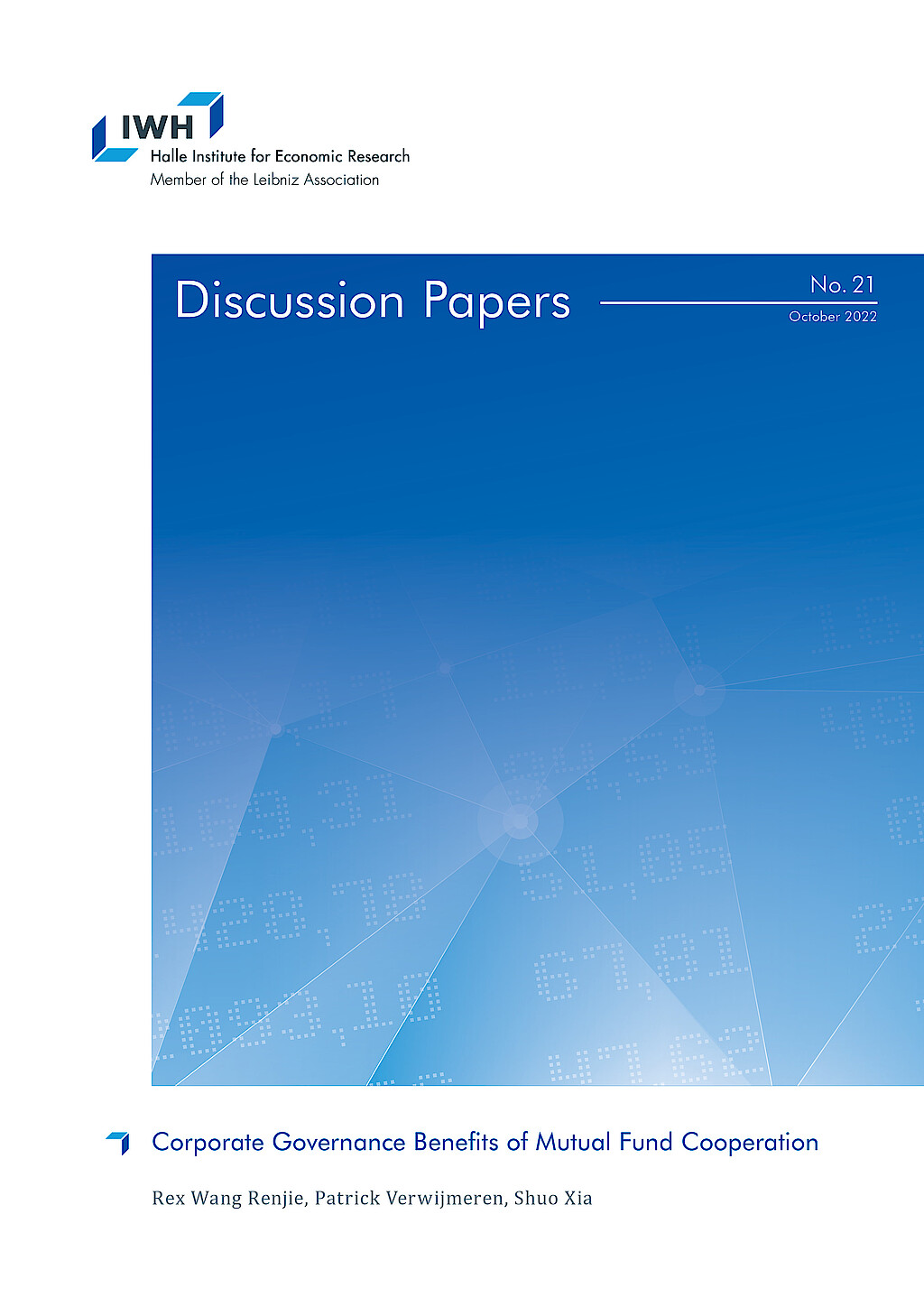
Corporate Governance Benefits of Mutual Fund Cooperation
in: IWH Discussion Papers, No. 21, 2022
Abstract
Mutual fund families increasingly hold bonds and stocks from the same firm. We study the implications of such dual holdings for corporate governance and firm decision-making. We present evidence that dual ownership allows financially distressed firms to increase investments and to refinance by issuing bonds with lower yields and fewer restrictive covenants. As such, dual ownership reduces shareholder-creditor conflicts, especially when families encourage cooperation among their managers. Overall, our results suggest that mutual fund families internalize the shareholder-creditor agency conflicts of their portfolio companies, highlighting the positive governance externalities of intra-family cooperation.

Why Do Workers at Larger Firms Outperform?
in: Working Paper, 2020
Abstract
Workers at larger firms outperform on average. For example, equity analysts working for more reputable brokerage firms produce more accurate earnings forecasts. Analysts employed by the highest ranked brokerages are about 6% more accurate than those employed by the lowest ranked brokerages, which is equivalent to an advantage of 17.5 years of more experience. This outperformance is driven by two significant effects: more reputable firms provide more resources that improve analysts' forecasting ability (influence), while more reputable firms also attract more talented candidates (sorting). We estimate a two-sided matching model to disentangle these two effects. We find that the direct influence effect accounts for 73% of the total impact while the sorting effect accounts for the remaining 27%.

Lame-Duck CEOs
in: SSRN Working Papers, 2018
Abstract
We examine the relationship between protracted CEO successions and stock returns. In protracted successions, an incumbent CEO announces his or her resignation without a known successor, so the incumbent CEO becomes a “lame duck.” We find that 31% of CEO successions from 2005 to 2014 in the S&P 1500 are protracted, during which the incumbent CEO is a lame duck for an average period of about 6 months. During the reign of lame duck CEOs, firms generate an annual four-factor alpha of 11% and exhibit significant positive earnings surprises. Investors’ under-reaction to no news on new CEO information and underestimation of the positive effects of the tournament among the CEO candidates drive our results.

Selection Versus Incentives in Incentive Pay: Evidence from a Matching Model
in: SSRN Working Papers, 2018
Abstract
Higher incentive pay is associated with better firm performance. I introduce a model of CEO-firm matching to disentangle the two confounding effects that drive this result. On one hand, higher incentive pay directly induces more effort; on the other hand, higher incentive pay indirectly attracts more talented CEOs. I find both effects are essential to explain the result, with the selection effect accounting for 12.7% of the total effect. The relative importance of the selection effect is the largest in industries with high talent mobility and in more recent years.










